6 ways to save money on your laundry – expert tips for a great wash at even better costs
Washing your laundry for less doesn't have to mean a less-than-satisfactory clean, experts share their tips for a more affordable wash

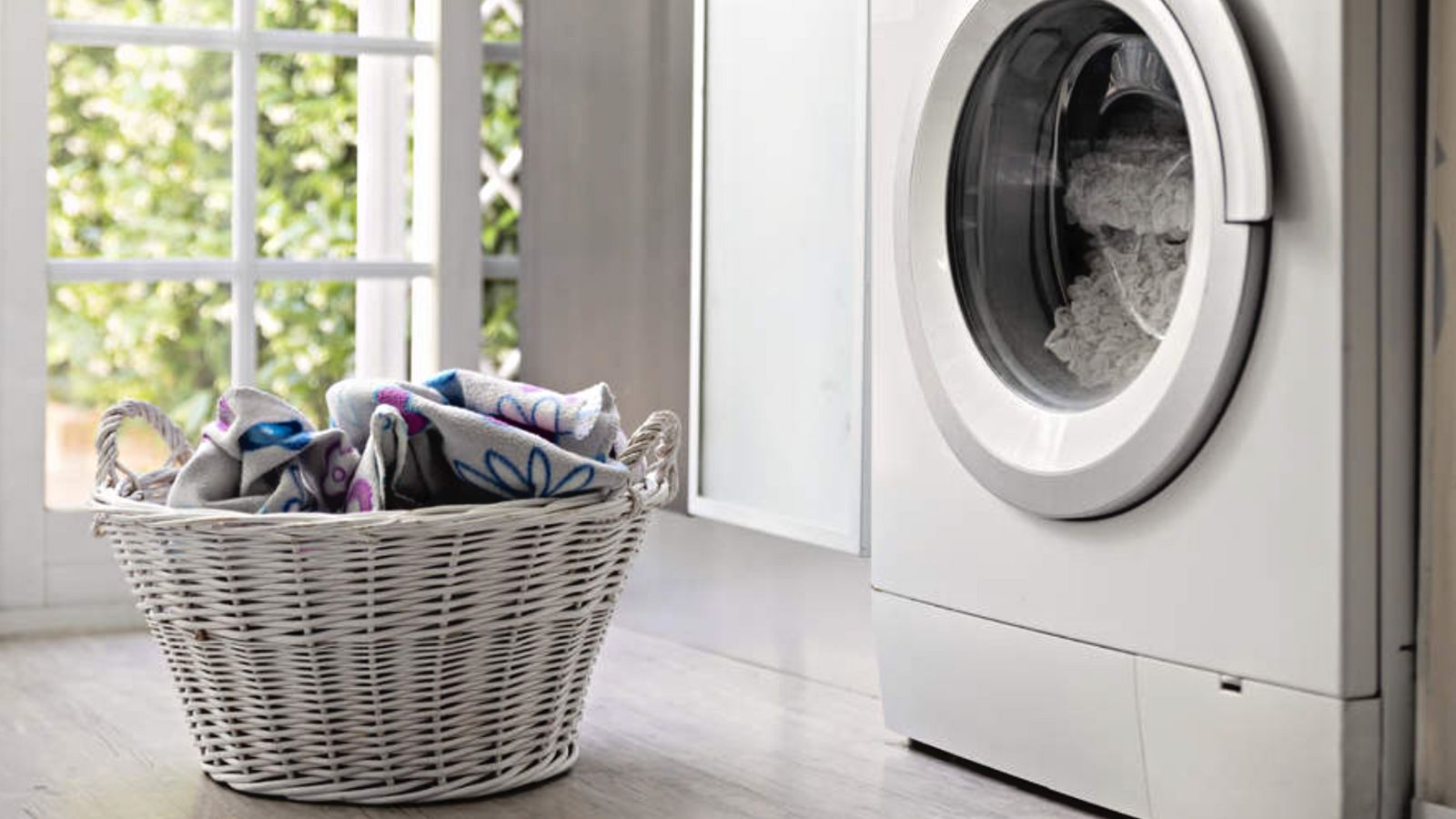
With the cost of almost everything rising, it is unsurprising that more people are looking to save money on the most basic of home chores, from heating to laundry.
When it comes to saving money at home, your laundry can be an unexpected drain on your household's finances, after all, we all spend longer in our laundry room ideas than we would perhaps like to. Given that the average load of laundry costs almost $3 at the moment, trying to save on each wash is more important than ever.
Here, experts have shared their top tips for saving money on your laundry so that you can spend your savings better elsewhere.
1. Wash less frequently
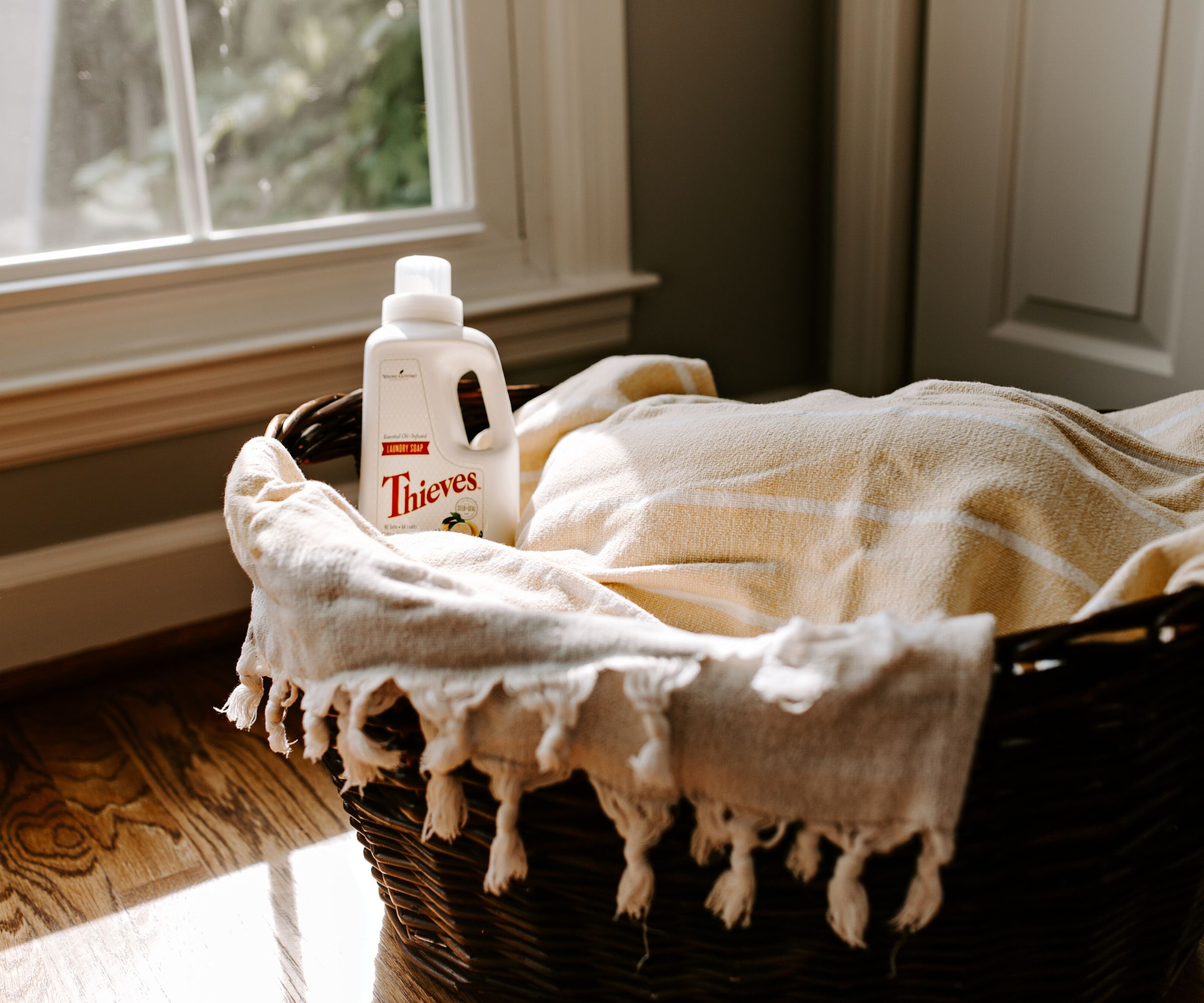
It is safe to say that laundry is many people's least favorite chore around the house, so you may be thrilled to hear that one of the best ways to save money on laundry is to simply do it less often.
'My top tip is simply just to wash your clothes less!' says Kathleen Bell, Smol’s sustainable cleaning expert. 'Unless it is underwear or you’ve been sweating a lot, most of our clothes don’t need washing after one or even two wears. Outer garments, like jumpers, for instance, may only need washing every five or six wears.
'In order to keep your clothes fresher for longer, shake clothes out when you get home and hang them up – airing clothes out at the end of the day allows faint smells to fade. Hanging by a window can also be a good idea as the UV from the sun’s light can help to kill bacteria,' she suggests. 'For clothes that have small stains or spillages but are otherwise clean, spot-clean the area directly rather than adding to the wash. The best way to tell if clothes need a wash is to use your nose and give clothes a quick sniff test.'
2. Cut back on laundry products
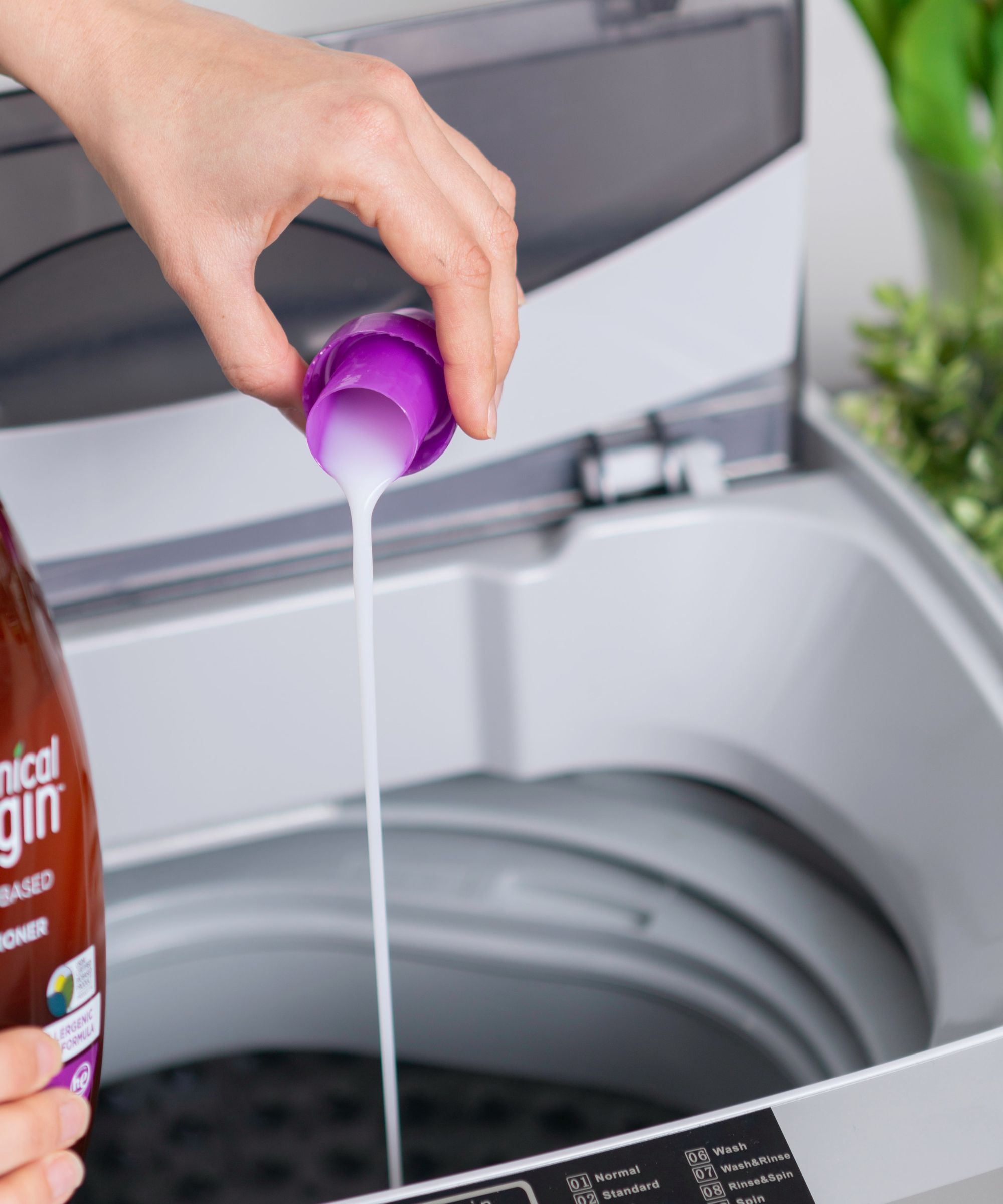
Not only does cutting down on laundry detergent help save clothes from horrid soap build-up, but can help to save money too.
Design expertise in your inbox – from inspiring decorating ideas and beautiful celebrity homes to practical gardening advice and shopping round-ups.
'People use way too much laundry detergent,' says professional cleaner Sara San Angelo, The Cleaning Lady. 'All you need is one tablespoon for a regular load and two for a large. A little goes a long way with laundry soap and it is going to save you a ton of money.'
3. Make your own laundry detergent
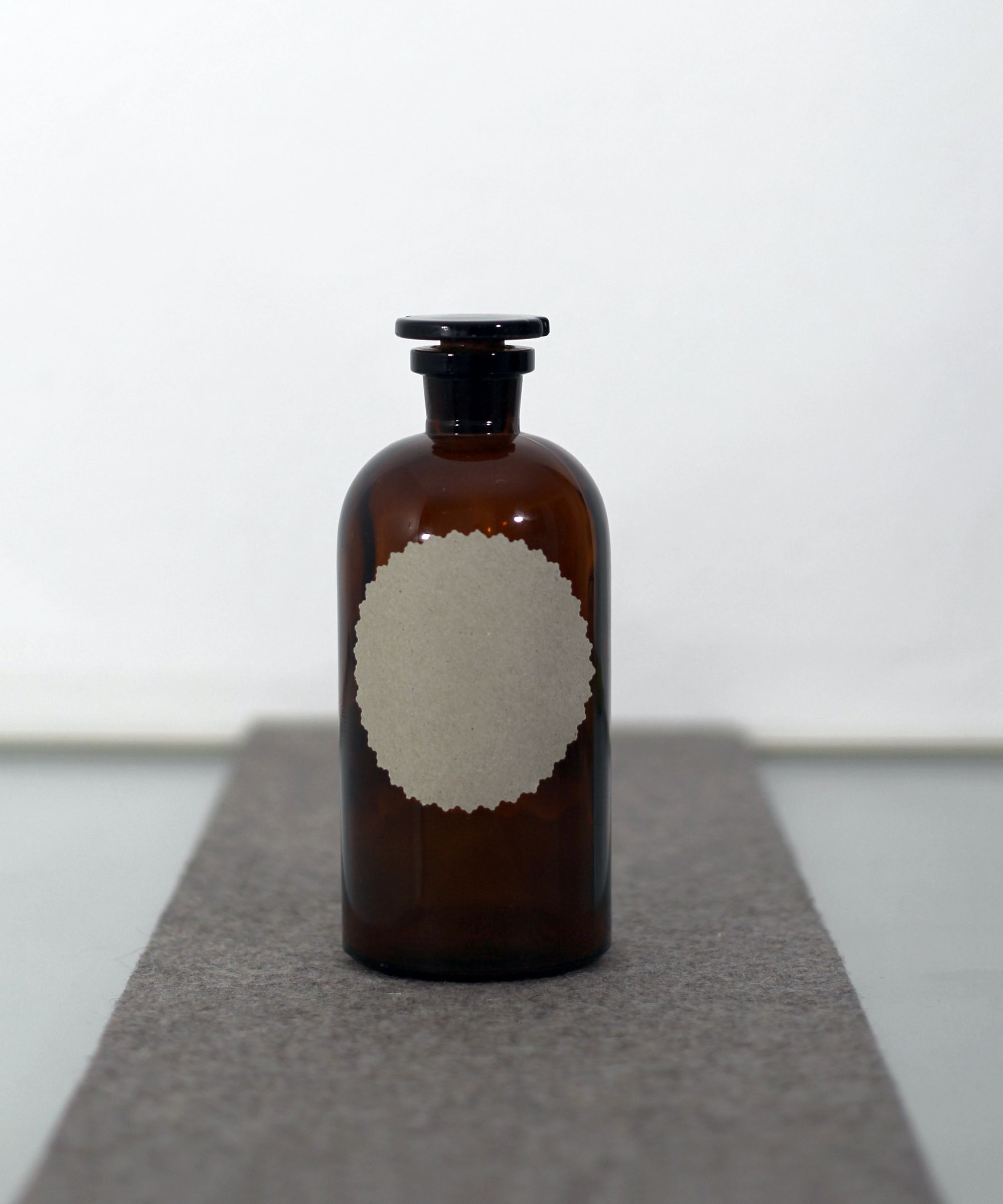
Unless the laundry symbols on your garments say that your clothing needs specific cleaning agents, the chances are you can make your own laundry detergent at home. There are hundreds of recipes out there for different needs, often using things you already have laying around your home.
Even better, these household cleaners are usually better for the environment too!
4. Wash with colder temperatures

Getting the temperature right on a washing machine is something that many people struggle with, however, it is usually a lot more simple than you think.
Washing on a cold wash or an eco cycle is great for saving money, and is no less efficient at cleaning your clothes at high temperatures. A wash at 80ºF is enough to freshen up clothes and remove stains such as blood from clothing. 'Washing at the right temperature not only helps for energy-saving but can also help keep your clothes looking better for longer, too,' says Kathleen. 'Most detergents work perfectly, and sometimes even better, at lower temperatures, because anything too hot can denature the enzymes in them that break down stains.'
Washing in colder temperatures is also recommended when washing towels and linens to preserve their fluffiness and extend their lifespan, and it is even good for washing whites.
5. Get to know you machines settings
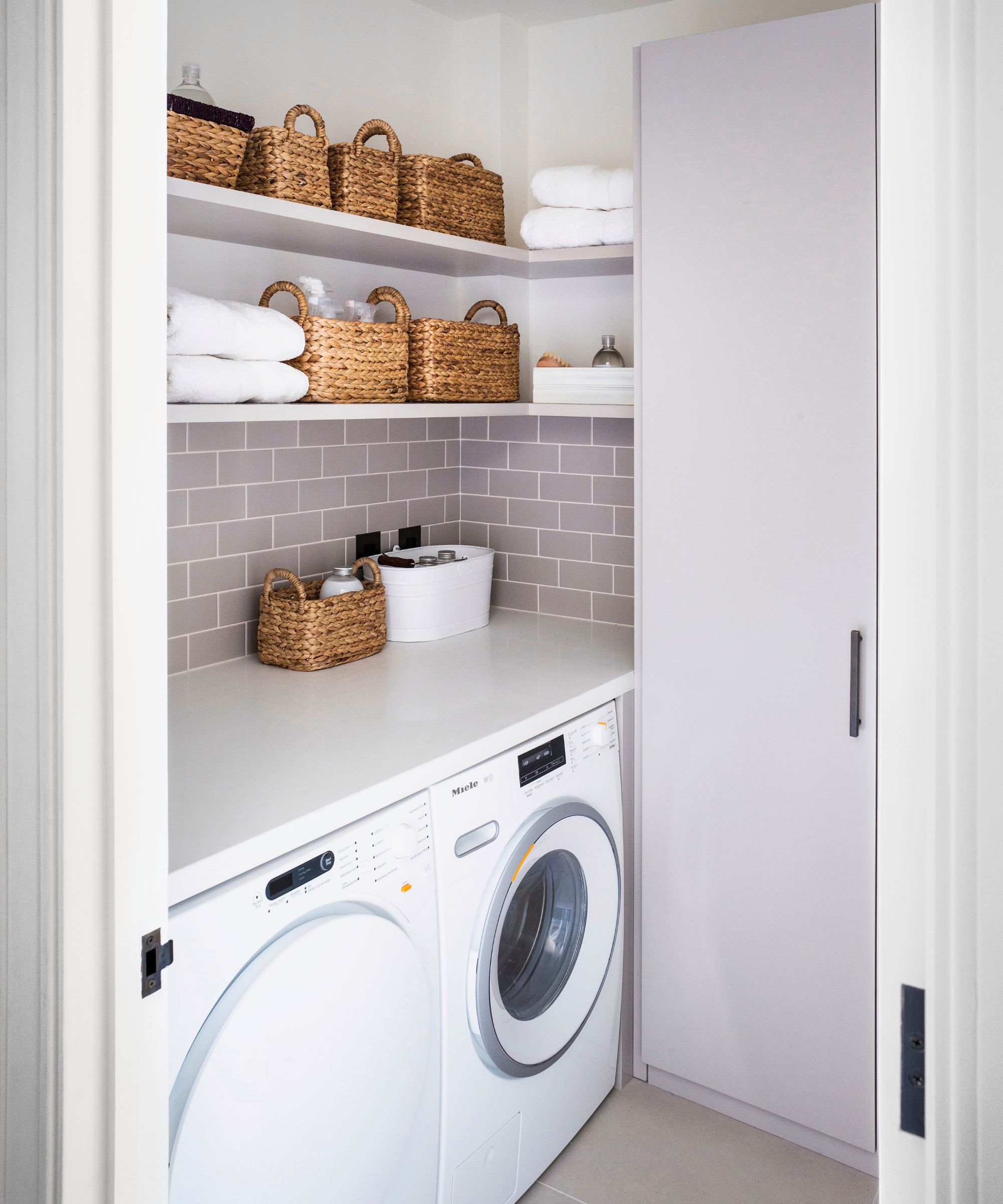
When it comes to organizing a laundry room, it is always a good idea to keep your washing machine manual close at hand so you can refer to it as and when you need it.
'Digging out your washing machine’s manual could save a lot of money per year,' suggests Kathleen Bell. 'While eco washes are often longer, they use less energy overall so really understanding what's best for your washing, and your wallet is important.
'Another benefit of digging out your manual is knowing the capacity of your drum. A half load of washing still uses the same energy and water as a full load, so you could potentially be wasting hundreds a year. To check if your machine is full, use your hand to measure a palm’s width between the top of your laundry and the top inside of the drum - any less and the washing won’t have room to clean, any more space than the width of your palm then you know you’re not at capacity.
'For both your washing machine and tumble dryer, check if you’re able to use the delay setting to allow you to run your machine at times of the day when energy is cheaper for you.'
6. Air dry your clothes
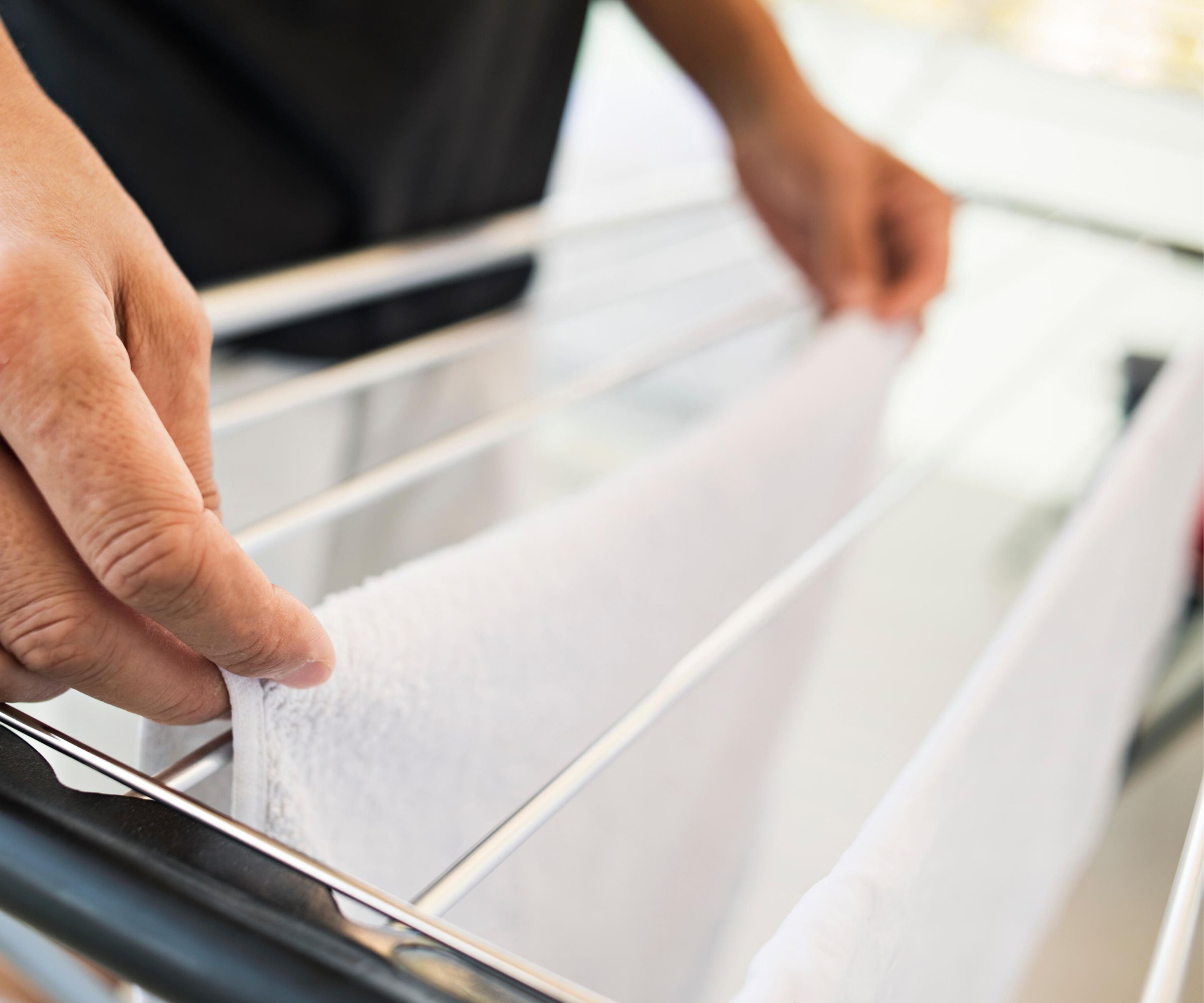
Once you know just how much it costs to run a tumble dryer, you will likely be looking for cheaper alternatives to getting your clothes dry.
'Air drying is a great way to save money while doing the laundry and your clothes come out smelling naturally fresh and clean,' recommends Sara San Angelo.
'Out of all the appliances in your home, your tumble dryer will usually be the one using the most energy- roughly 4.5 kWh per cycle,' Smol's Kathleen Bell explains. 'Air drying can have a BIG impact on your wallet. While drying outside isn’t always possible, especially as we head towards the festive season and the weather takes a turn, there are other ways of drying at home.
'Using an extra spin cycle on your wash helps to get as much moisture out of clothes as possible before hanging them up to dry. Should you be using a drying rack, it's important to remember to leave enough space for the moisture in your clothes to evaporate – don’t overpack. Wherever possible, be sure to leave clothes to dry in a space without humidity (avoid the bathroom).'
Consider trying a heated airer combined with one of the best dehumidifiers to get the most out of drying your clothes indoors.
'If you must use your dryer, do multiple loads one after the other to make the most use of the heat built up in the drum,' Kathleen suggests. 'You can also try adding a towel to the dryer to absorb additional moisture in your drum.'
7. Skip the ironing
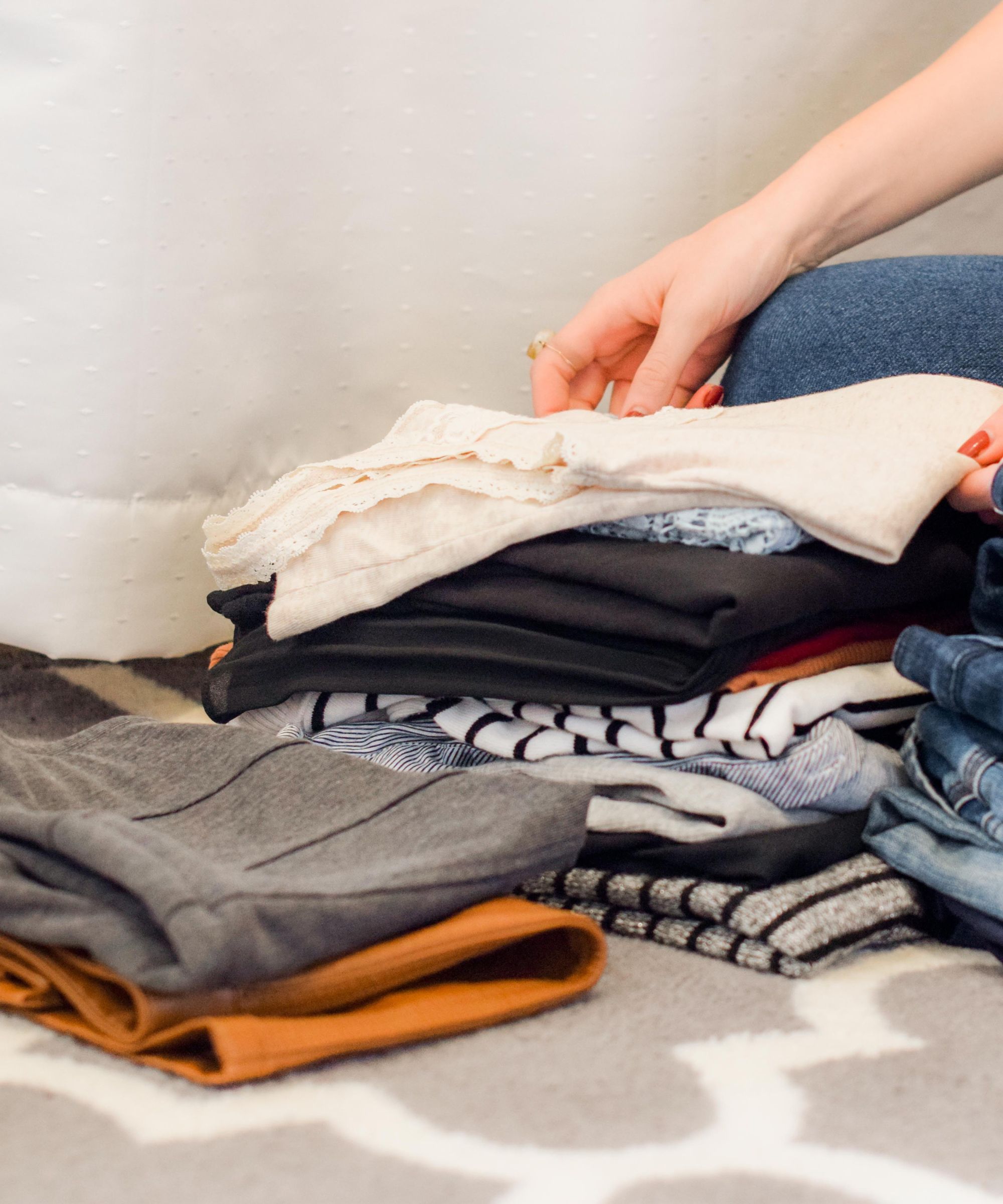
Being told to avoid ironing is likely music to many people's ears, but if you are looking to save a little bit more on laundry, cutting ironing could make a small difference. When you have completed your laundry simply hang your items out for creases to drop. For items that are heavily creased, consider hanging your clothes in your bathroom as you shower, allowing the steam to help the creases drop.
Try taking steps throughout the laundry process to help reduce creases in clothes, such as not overloading your washing machine, and using foam runners on clothes racks to soften the bars and prevent deep creases that are hard to get rid of.
Ironing is not the most expensive aspect of your laundry, however, so cutting this step out will depend on how much you are looking to save.
How can I save money using my washing machine?
The best way to save money when doing laundry is to wash as many things as you can on a cold wash. The colder the water, the better for saving money.
Make sure to pay attention to the instructions on your washing, however, make sure that a cold wash won't cause damage.
Is it cheaper to wash laundry at home?
When deciding if it is cheaper to do your laundry at home or at a laundromat, it pays to work out the cost of one laundry cycle using your at-home machine and compare it to the prices at your laundromat or laundry services. If your Laundromat or services use their own detergent products, or you pay for your water usage rather than a standard charge, you may find that the laundromat works out a little cheaper.

Chiana is Homes & Gardens’ kitchen appliances editor. With a lifelong passion for cooking and baking, she grew up experimenting in the kitchen every weekend with her baking-extraordinaire Mom, and has developed a great understanding of how tools and appliances can make or break your ideal relaxing kitchen routine.